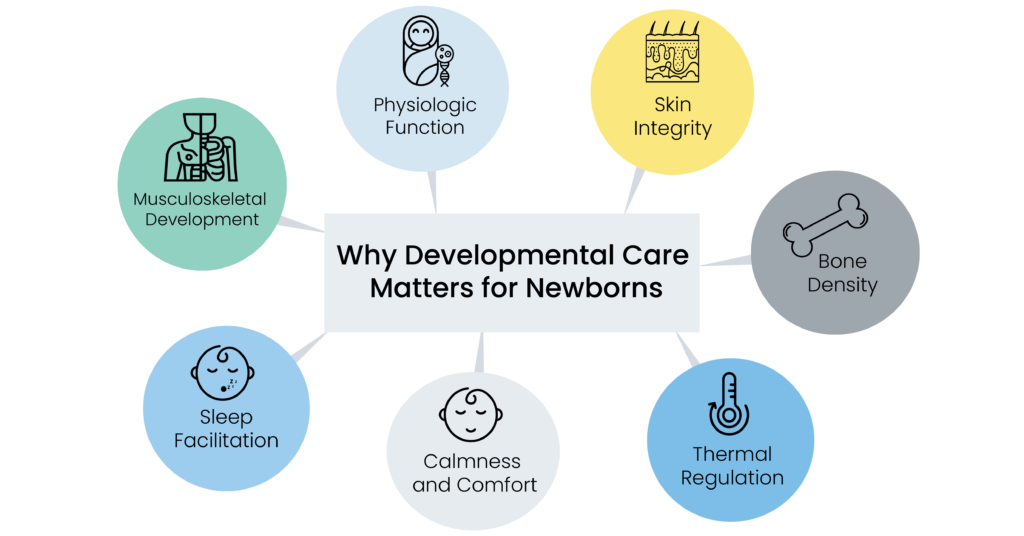
Why Developmental Care Matters for Newborns
Developmental care in neonates is a specialised approach aimed at creating an optimal environment for newborns born prematurely, being cared for in neonatal intensive care units (NICUs). It focuses on:
- Minimising stress
- Supporting physiological stability
- Promoting neurodevelopment through individualised, family-centred interventions.
Since the neonatal brain is highly sensitive to external stimuli, reducing excessive noise, light exposure, and handling helps protect neural development and prevent long-term cognitive and sensory processing issues. Ensuring a calm and nurturing environment allows for improved sleep patterns, better autonomic regulation, and overall enhanced growth and development.
One of the most significant aspects of developmental care is its role in reducing stress and pain in neonates. Strategies such as kangaroo care (skin-to-skin contact), proper positioning, swaddling, and non-nutritive sucking provide comfort and stability, helping to reduce heart rates and improve respiratory function, and oxygen saturation.
Additionally, involving parents in the care process strengthens the parent-infant bond, builds parental confidence, and improves emotional well-being. These interventions contribute to improved feeding, digestion, weight gain, and even shorter hospital stays, leading to better long-term health outcomes.
Developmental care is essential for ensuring the best possible start for a neonate. By prioritising individualised care and parental involvement, healthcare providers can foster a supportive and nurturing environment that enhances physical, cognitive, and emotional development.